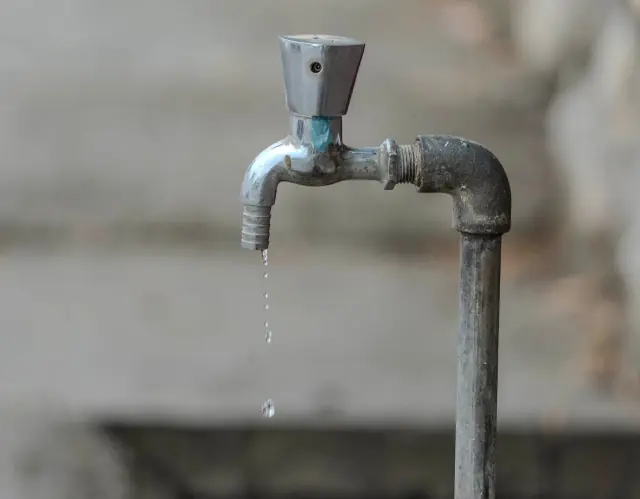
Bulgaria is grappling with chronic water shortages largely caused by its aging and deteriorating water transmission infrastructure, the Ministry of Environment and Water (MOEW) disclosed recently, according to a report by BGNES.
The ministry revealed that more than 60% of water losses experienced by water and sanitation operators stem from outdated infrastructure, a situation mirrored in the irrigation sector, where over half of available water remains unused.
Data from the Ministry of Agriculture highlights that 53.6% of water resources designated for irrigation are lost, underscoring significant inefficiencies in managing the country’s water supply.
These losses are part of a broader systemic issue, with the Commission for Energy and Water Regulation reporting that total water supply system losses soared to 60.21% in 2023 alone. Such figures have alarmed officials, emphasizing the urgent need for infrastructure upgrades to secure Bulgaria’s water future.
In response, the MOEW is prioritizing climate adaptation within its national water management strategies. The ministry is tasked with managing complex dam systems, crafting comprehensive river basin management plans, and spearheading flood risk mitigation efforts to buffer against increasingly unpredictable weather patterns.
These initiatives reflect an understanding that Bulgaria’s water crisis is intricately linked not only to infrastructure failure but also to climate variability.
Since 2007, Bulgaria has invested significantly in addressing water supply and sanitation challenges. Through the Operational Programme ‘Environment,’ the government has poured BGN 3.6 billion into related projects.
For the current 2021-2027 period, another BGN 1.4 billion has been allocated via the National Water Supply and Sewerage Investment Plan. Complementing these efforts, the Environmental Management Enterprise (EMEA) has provided BGN 84 million in grants aimed at municipal water infrastructure improvements between 2022 and 2024.
Yet, the country continues to face daunting environmental challenges. The ongoing drought gripping Eastern Europe, intensified by above-average temperatures in April 2025, has exacerbated Bulgaria’s water scarcity.
The Joint Research Centre of the European Commission, contributing to the UNCCD Drought Toolbox, reports that extensive dry spells now impact large portions of Eastern and Southern Europe, including the Mediterranean and Baltic regions.
Meanwhile, the European Drought Observatory confirms that as of late April, 31.3% of the EU and UK territories are under drought conditions, with Bulgaria classified as a moderate-risk zone. Despite Bulgaria’s overall sufficient water resources, their uneven regional distribution poses major problems.
High-density population centers, areas with water-dependent industries, and certain geographic zones remain particularly vulnerable, especially during the increasingly frequent dry summer months. This spatial imbalance compounds the country’s water management challenges.
Environmental data further paints a troubling picture. According to the National Report on the State and Protection of the Environment, Bulgaria’s renewable freshwater resources in 2022 dropped by 24.5% compared to the 1981-2022 average.
This decline echoes wider European trends, where roughly 20% of the continent’s territory and 30% of its population contend with water shortages annually.
The European Parliament adds that only 39.5% of surface water bodies in the EU have attained good ecological status, and just 26.8% meet the ‘good’ chemical status criteria.
With Bulgaria’s water infrastructure under strain, climate pressures mounting, and resources unevenly spread, authorities face a race against time.
The integration of climate adaptation measures and sustained investment in infrastructure upgrades are crucial steps to mitigate water losses and safeguard Bulgaria’s water security in an era of increasing environmental uncertainty.
